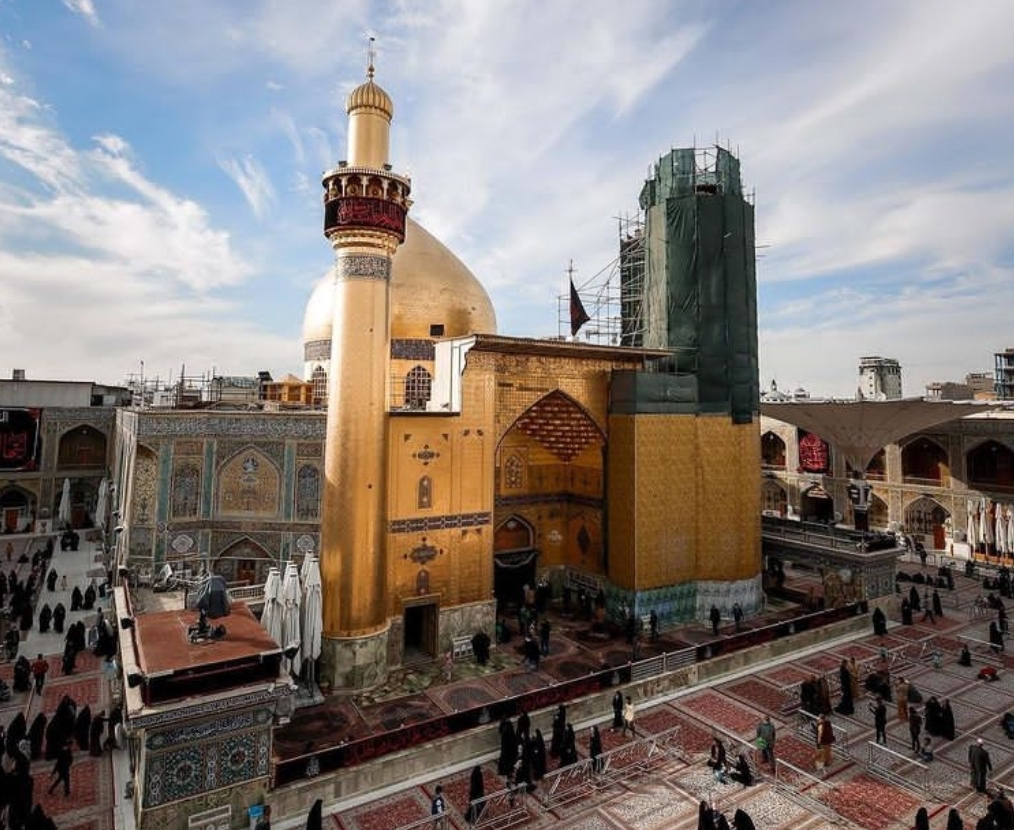Marxism in 2021 - Is it still relevant?
by Hāsnain Riza
His ideas defined the political and economic landscape of the previous century. The day affords the opportunity to ask to what extent, if any, those ideas are relevant today, in 2021.
Marxism has always been polarizing, but perhaps the political anomie of 2021 leaves the debate over its relevance less ideologically encumbered than previous milestones. Soviet-style communism has settled into the ash heap of history, and yet, for many, capitalism’s victory has been less than decisive, particularly following the economic crash of 2007, an event that has driven a small but growing number of citizens in advanced industrial nations to question the very foundations of our economic system.
“Marx was the first great critic of capitalism,” says Richard Wolff, a visiting professor at the New School in New York and one of the few Marxian economists in American academia. “And nothing has for certain guaranteed the presence and future of Marxism than the existence of capitalism, of which it is, you might say, the critical shadow.”
A central thesis of Marxism is that capitalism has given rise to two hostile classes: the workers, who in order to survive must exchange their labor for wages; and the bourgeoisie, who own the businesses that pay the workers. The bourgeoisie generate profit by paying their workers less than the entire value of the goods that they produce, keeping the rest for themselves.
This extraction of “surplus value” from workers, say Marxists, produces a fundamental contradiction. Employers must maximize profits by keeping wages as low as possible, but they must also continue to sell products, which becomes increasingly difficult as workers’ buying power is limited by low wages. From a employer’s revenue standpoint, the ideal would be to have poorly paid workers and highly paid customers, but that ideal becomes unattainable when pursued by everyone. The system, according to Marxist theory, inevitably feeds upon itself.
“Capital is chasing all over the globe for the cheapest possible labor that it can find, working it as long and as hard and as cheaply as it can,” says Wendy Brown, a political theorist at University of California, Berkeley. “Marx could have explained that to you 200 years ago.”
Born on May 5, 1818, to a well-to-do Jewish family that converted to Lutheranism in the Rhineland town of Trier, a Roman Catholic town reclaimed by Prussia from France four years earlier, Marx arrived in the world amid a tumult of conflicting ideas about who ought to hold power and why. His early journalism, which he took up after completing a doctorate in philosophy at the University of Berlin and failing to secure a professorship, shows the glimmer of an academic discipline that would one day count Marx among its founding fathers: social science.
In 1843, writing for radical newspaper the Rheinische Zeitung about the economic plight of wine growers in his native Moselle Valley, Marx called for an “objective standpoint” that would analyze society and its relations “with approximately the same certainty with which the chemist determines the external conditions under which substances having affinity are bound to form a compound.”
He quickly discovered that attempting to wield the scientific method against Prussian state power is a surefire way to be kicked out of the country. Marx and his wife, a beautiful and rebellious aristocrat named Jenny von Westphalen, chose Paris, which at the time was teeming with activists from across the political spectrum: monarchists, anarchists, and a group who envisioned a society in which property was commonly owned.
“Like Ho Chi Minh, Zhou Enlai, and Pol Pot, it was only in Paris that Marx became a communist,” says Jonathan Sperber, a University of Missouri historian and author of the 2013 biography, “Karl Marx: A Nineteenth-Century Life.”
Prussian authorities pressured France to exile Marx from the country in 1845. He eventually wound up in London in 1849, where he spent the rest of his life.
Marx died in 1883 without witnessing a proletarian revolution. But in 1917, revolutionaries inspired by his words toppled Russia’s government and established history’s first workers’ state. Within 50 years, more than a third of humanity would come to live under an officially Marxist government.
“The regimes that used his name,” says Professor Sperber, “Don’t have a whole lot to do with Marx’s ideas. They were very centralized and bureaucratic. And Marx deeply, deeply hated bureaucrats.”
But even if Marxist regimes failed to implement his ideas, those ideas nonetheless spread. “Marxism in one form or another has penetrated into the history and culture of every country in the face of the Earth,” says Professor Wolff. “It has intermingled with every language, culture, level of historical development, and set of economic conditions and circumstances.”
Seven decades after those first shots were fired in Petrograd, the Bolsheviks’ grand and bloody experiment came to an abrupt halt with economic collapse and dissolution. To many observers, communism’s collapse in 1989 signaled the end of Marxism’s relevance.
But something unexpected happened along the way to what should have been capitalism’s triumph. In late 2007, the global economy imploded in a spectacularly Marxian fashion, leaving the banks themselves suddenly beggared and in need of a public bailout. The central myth of neoliberal capitalism, that market economies are inherently self-regulating, had been punctured, observers say.
“The crash opened up, in the very upset of conventional ways of thinking, a willingness to re-examine old issues that had never been resolved,” says Wolff.
Following the crash, booksellers around Germany reported that sales of Marx’s seminal work, “Capital,” rose 300 percent. Marxism, it seems, is making something of a comeback.
“I’ve done more invited public speaking since 2009 than in the previous 40 years,” says Wolff, who advocates for democratically run worker cooperatives that could exist alongside capitalist enterprises. “The audiences range from 200 to 500 people, and the interest is electric.”
But this popularity might have more to do with a discontent with capitalism than with an embrace of Marxism. “Often if you look at when people say, what is it about Marx that’s relevant to today, all they can do is give you phrases,” says Sperber. “They can say things like, ‘crisis,’ ‘globalization,’ ‘inequality,’ and they’re just literally almost just like slogans and words.”
To Professor Brown, the question of Marxism’s contemporary relevance has two answers: yes and no.
“He has tremendous relevance for our time. And I think there are limitations that have to do with his 19th-century context,” she says, noting that Marx never predicted the central role financial institutions would play in industrial economies.
Yet the critical tradition that Marx spawned, which extends across the humanities and social sciences, makes it impossible to contain Marxism entirely in a 19th-century context.
“Marx in certain ways became so much part of the air we breathe and the water we swim in, even where he was repudiated,” says Brown.
“[Marxism] is everywhere,” says Wolff. “And it’s not going away.”



Comments
Post a Comment